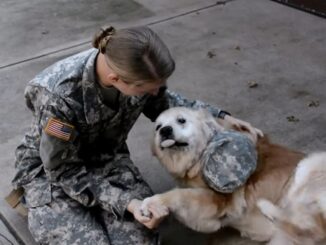Every person counts. And four other important rules to work by.

In the military, there are shared beliefs, consistent values, and deep traditions across all military units. In comparison, it’s often unclear in businesses what values a company operates with. In the military, certain protocols exist such as respect for rank regardless of the military branch, following orders, communicating clearly , and giving only one’s absolute best. But corporate cultures vary–from top-down hierarchies to vague or flat leadership.
Military culture is traditional, historically informed and fixed, whereas corporate cultures differ based on the leadership or other variables that oftentimes create challenges for employees at every level. Military personnel have a clearly structured and transparent path to promotion, while in the world of business, there’s often no defined career progression and the necessity for employees to manage their careers.
It’s clear that above all else, the Navy SEAL’s functional and effective teamwork is among one of its top strengths. The following SEAL insights could, and should, be applied to working teams in business.
1. A Navy SEAL does not discriminate.
Regardless of shape, size, beliefs, or culture, the biggest personal trait demanded of a SEAL is demeanor. A Navy SEAL does not display a superior attitude or arrogance, but rather a confidence in his physical and mental abilities for the good of the team.
2. Every person counts.
Settling for mediocrity is the death of an organization. Every SEAL knows with 100% confidence that the person behind him will be able to save his life. Corporate leaders need to be able to say the same about their management teams. Employees’ livelihoods depend on it.
3. SEALS train.
When SEALs are not on combat deployment, they spend the vast majority of their time in training. In contrast, executives spend the majority of their time executing. The importance of training for new employees, or even a veteran team, is vital to the success of the business. Navy SEALs spend thousands of hours honing their skills, and so should employees in a profession.
4. Everyone is expendable.
All SEALs are trained in a nearly identical manner, so no one SEAL is indispensable to the unit or the mission. The understanding during combat is that anyone can be lost at any time and the rest of the unit can carry on the mission successfully. Businesses need to ensure contingency plans are in place for any unforeseen personnel circumstances within their organization so the team can carry on without any delays.
5. You never know the measure of people until they are tested.
People are more resilient and tougher than imagined. During SEAL training, instructors prove that their men are capable of 10 times more than what they ever imagined. Until your team is really tested, you can never be too sure who will step up and who will falter in any given situation.


